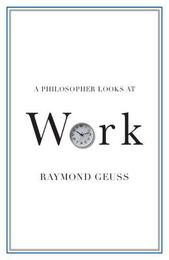
|
A Philosopher Looks at Work
Paperback / softback
Main Details
Description
Is work as we know it disappearing? And if so why should we care? These questions are explored by Raymond Geuss in this compact but sweeping survey which integrates conceptual analysis, historical reflection, autobiography and social commentary. Geuss explores our concept of work and its origins in industrial production, the incentives and compulsions which societies use to get us to work, and the powerful hold which the work ethic has over so many of us. He also looks at dissatisfaction with work - which is as old as work itself - and at various radical proposals for doing away with it, and at the seemingly irreversible growth of unemployment as a result of mechanisation. His book will interest anyone who wishes to understand the place of work in our world. This new series offers short and personal perspectives by expert thinkers on topics that we all encounter in our everyday lives.
Author Biography
Raymond Geuss is Professor Emeritus of Philosophy at the University of Cambridge. He is the author of over a dozen books on political and critical theory, ethics and the history of philosophy, including The Idea of a Critical Theory (Cambridge, 1981), History and Illusion in Politics (Cambridge, 2001), Changing the Subject (2017) and Who Needs a World View? (2020).
ReviewsRaymond Geuss has produced a timely and major contribution to our understanding of the complex reality of work. The book skilfully opens up important new questions whilst thoughtfully re-engaging with the classics. It is also a beautifully written study in which the tortuous, uncertain yet unavoidable place which work takes in all our lives is delicately unpacked with the author's characteristic insightfulness and good humour. Brian O'Connor, University College Dublin
|